2
Following
always in love with books
“If I cou'd get 40L a year by being the interpreter of nonsence I should like it very well, having too much unprofitable nonsence in my own head." - Sarah Scott, 1754
Currently reading
A Clash of Kings
Searching for Dragons
The Center Cannot Hold: My Journey Through Madness
 NB: As a former graduate student who has attended with delight the kinds of literary conferences that Madeline squeals over and has sat through plenty of painful lectures on Derrida and other literary theorists, I am probably this novel's target audience.
NB: As a former graduate student who has attended with delight the kinds of literary conferences that Madeline squeals over and has sat through plenty of painful lectures on Derrida and other literary theorists, I am probably this novel's target audience. This book plays with the marriage plot (the idea that a young woman's story ends when she gets married) on several levels: the heroine studies the marriage plot as her senior undergraduate project, the marriage takes place in the middle of the story, the ending offers both disintegration and hope. Perhaps most interestingly, the story does not revolve only around a young, beautiful heroine, but also on her mentally ill boyfriend/husband and the boy who feels like he is destined to marry her. In fact, Mitchell seems more like a traditional subject of a marriage plot than Madeline does, seeing as he is drawn less to deconstruction than to faith and fate and clear story structures involving epiphanies and reconciliations.
This book was not perfect for me--it became a bit slogging and painful when it focused on Leonard's illness and medication, e.g.--but its imperfections made it feel all the more realistic (another aspect of the story that plays with the inherent romance in the marriage plot). The five stars and "favorite" rating are mostly because I would love to teach this novel alongside books like Evelina, Persuasion, Jane Eyre, and Sister Carrie.
 This is a beautifully-constructed book that, like all very good books, made the world seem tinted slightly differently when I put the book down. It's a suspenseful coming-of-age book that also manages to be a philosophical fable about the Big Questions in life. It is big-hearted and thought-provoking without being pretentious. I really enjoyed it.
This is a beautifully-constructed book that, like all very good books, made the world seem tinted slightly differently when I put the book down. It's a suspenseful coming-of-age book that also manages to be a philosophical fable about the Big Questions in life. It is big-hearted and thought-provoking without being pretentious. I really enjoyed it.
 1
1
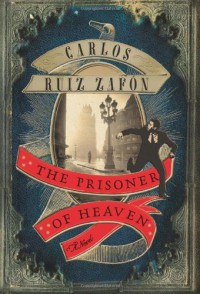 I loved Shadow of the Wind and The Angel's Game, so I was all the more disappointed by this short, uneven book. Its main purpose seemed to be to explain away some of the mystery behind the other two books, which strikes me as a bad idea--it's not only a bit boring to explain so much, but it takes some of the mystery away from the other two. The story had little suspense and jumped ineffectively from tragedy to comedy. What was so beautifully blended in Shadow of the Wind here just seemed like a mess. I was almost ready to forgive the explanatory nature of the book as a way to tie everything together when it unexpectedly ended on a sort of cliffhanger (one that left me uninspired to read any future books). I disagree with the opening note that this book can be read as a stand-alone novel or as an entry point to the other two; no one who reads this one would believe that the others could be so good. I really expected so much more from this.
I loved Shadow of the Wind and The Angel's Game, so I was all the more disappointed by this short, uneven book. Its main purpose seemed to be to explain away some of the mystery behind the other two books, which strikes me as a bad idea--it's not only a bit boring to explain so much, but it takes some of the mystery away from the other two. The story had little suspense and jumped ineffectively from tragedy to comedy. What was so beautifully blended in Shadow of the Wind here just seemed like a mess. I was almost ready to forgive the explanatory nature of the book as a way to tie everything together when it unexpectedly ended on a sort of cliffhanger (one that left me uninspired to read any future books). I disagree with the opening note that this book can be read as a stand-alone novel or as an entry point to the other two; no one who reads this one would believe that the others could be so good. I really expected so much more from this.
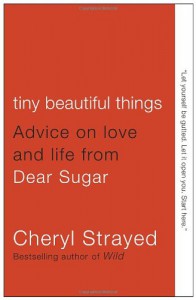 This book was difficult to read. The letters were beautiful, but they were also intense. I wasn't expecting to be as affected as I was; I was at turns saddened, amused, terrified, broken, and reassured. This might be better reading in its original form--one letter at a time--but I'm glad I read it.
This book was difficult to read. The letters were beautiful, but they were also intense. I wasn't expecting to be as affected as I was; I was at turns saddened, amused, terrified, broken, and reassured. This might be better reading in its original form--one letter at a time--but I'm glad I read it.
 I got this book for my Kindle from a local library, not knowing much about it. Because of this, I assumed it was fiction, and it was only very slowly--as I began to see photograph after photograph--that I suspected it was based on a real story. I think it was more powerful to read the book in this way; it became so much more poignant when it switched from a hypothetically real story to actual events that happened to actual people.
I got this book for my Kindle from a local library, not knowing much about it. Because of this, I assumed it was fiction, and it was only very slowly--as I began to see photograph after photograph--that I suspected it was based on a real story. I think it was more powerful to read the book in this way; it became so much more poignant when it switched from a hypothetically real story to actual events that happened to actual people. The book itself was difficult to read, but not in ways I expected. It was the human injustice much more than the storm itself that was devastating. Kathy's post-traumatic stress was also hard to read about. Still, the concluding faith in what could--and can still--be rebuilt was incredibly affirming, and made me want to purchase the book to support the Zeitoun foundation.
 3.5 stars. I liked the two stories--Kerou's and Madrigal's--very much on their own. I was especially fond of Kerou--her strangeness and strength--and fascinating by her mysterious upbringing and constant travels. I could also lose myself in the Romeo-and-Juliet story of Madrigal and Akiva, which was full of gorgeous longing. The problem I had was that in combining the two stories via Madrigal's reincarnation, everything got a little bit...creepy. Akiva and Kerou's relationship does not fill me with happiness, but sets my teeth on edge a bit. I'm not sure there's any way this could have been fixed without a completely different plot, but it was something that bothered me.
3.5 stars. I liked the two stories--Kerou's and Madrigal's--very much on their own. I was especially fond of Kerou--her strangeness and strength--and fascinating by her mysterious upbringing and constant travels. I could also lose myself in the Romeo-and-Juliet story of Madrigal and Akiva, which was full of gorgeous longing. The problem I had was that in combining the two stories via Madrigal's reincarnation, everything got a little bit...creepy. Akiva and Kerou's relationship does not fill me with happiness, but sets my teeth on edge a bit. I'm not sure there's any way this could have been fixed without a completely different plot, but it was something that bothered me. I do want to read the sequel, though.
 This book worked for me when it was reflecting, confessing, and speaking aloud what people are just too scared to say. There were moments of outrageous, surreal humor that made me laugh or gasp, and several surprisingly poignant passages. When the book was prescribing or generalizing about what women do (in the wedding chapter, for example), I found it was a bit flat. It's possible that this book is at its best when it's not preaching to the choir.
This book worked for me when it was reflecting, confessing, and speaking aloud what people are just too scared to say. There were moments of outrageous, surreal humor that made me laugh or gasp, and several surprisingly poignant passages. When the book was prescribing or generalizing about what women do (in the wedding chapter, for example), I found it was a bit flat. It's possible that this book is at its best when it's not preaching to the choir.
 I have an improbable love for this kind of story: the true tale of an ordinary person who decides to go on a ridiculous, difficult, glorious journey. This one is half trail account and half autobiography, and the writing is lovely.
I have an improbable love for this kind of story: the true tale of an ordinary person who decides to go on a ridiculous, difficult, glorious journey. This one is half trail account and half autobiography, and the writing is lovely.
 I wanted to love this book, and for that reason it was disappointing. There were parts of it that I really enjoyed--I think I would have rated it much higher if it had been the story of a Scottish orphan rediscovering her lost family in Iceland.
I wanted to love this book, and for that reason it was disappointing. There were parts of it that I really enjoyed--I think I would have rated it much higher if it had been the story of a Scottish orphan rediscovering her lost family in Iceland. This novel's weakness was the very thing I had thought I would love: its connection to Jane Eyre. This novel could have simply used Jane Eyre as an inspiration point and departed in its own directions, but instead it feels restricted by the structure of Bronte's novel. The parts of The Flight of Gemma Hardy that were closest to Jane Eyre felt either like over-explanation (explaining away Gemma's/Jane's dreams as direct childhood memories or predictions, making overt Archie's/St. John's lack of interest in sex), amelioration (making Gemma/Jane very good with children, toning down Mr. Sinclair's/Rochester's sins, giving Gemma/Jane the chance to do something other than marry young), or--worse--just plain referentially jokiness ("It's not as if I have another wife," Mr. Sinclair says at one point).
When the novel feels free to depart from Jane Eyre and Gemma hops on a plane to Iceland, it vastly improves. I just wish this novel could have been inspired by instead of caged by Bronte's original.
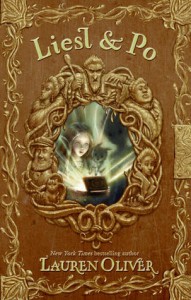 "She understood then, too, that everyone drowns differently, and that for everyone--even ghosts--there is a different kind of air."
"She understood then, too, that everyone drowns differently, and that for everyone--even ghosts--there is a different kind of air."It's difficult trying to characterize this book. It is children's literature, but it doesn't shy away from dark themes or adult insights. While it reads like a fable, it avoids overly-simplistic moral judgments. In fact, one of the things that most appealed to me was the way in which even the stereotypical villains had idiosyncratic faults and fears. The author writes in her note that writing this book was a form of healing for her after her best friend passed away; I suspect that different readers will take away different parts from it at different times. For everyone, there is a different kind of air.
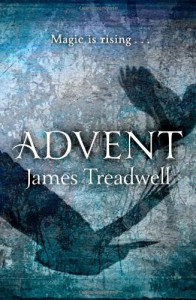 My husband told me I would love this book, and he was right. At first, I saw it as a way to scratch the Harry Potter itch since the novel follows an ordinary (but not ordinary) teenager to an enchanted place where he learns that the world he truly belongs to is a magical one. Treadwell takes the novel beyond this familiar structure, however, and constantly shows us new (and often terrifying) ways to imagine magic folding itself into the real world. This was an exciting, rich book, and my husband and I may have to fight over who gets to read the sequel first.
My husband told me I would love this book, and he was right. At first, I saw it as a way to scratch the Harry Potter itch since the novel follows an ordinary (but not ordinary) teenager to an enchanted place where he learns that the world he truly belongs to is a magical one. Treadwell takes the novel beyond this familiar structure, however, and constantly shows us new (and often terrifying) ways to imagine magic folding itself into the real world. This was an exciting, rich book, and my husband and I may have to fight over who gets to read the sequel first.
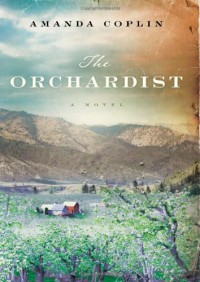 I loved the shifting points of view and the gorgeous setting of this novel. While I was reading, I kept expecting--and then, later, wishing for--a more conventional plot; I wanted to understand the string of events as leading to redemption, revenge--some kind of resolution. The book refused to match my expectations, which frustrated me at first, but later made the book more powerful, more realistic. Despite the book's overarching sadness, the love that so many characters demonstrated for one another, and especially for Angelene, left me with a strong sense of hope and faith in the flawed-but-genuine goodness of people. Amanda Coplin writes beautifully and I would love to read whatever else she writes.
I loved the shifting points of view and the gorgeous setting of this novel. While I was reading, I kept expecting--and then, later, wishing for--a more conventional plot; I wanted to understand the string of events as leading to redemption, revenge--some kind of resolution. The book refused to match my expectations, which frustrated me at first, but later made the book more powerful, more realistic. Despite the book's overarching sadness, the love that so many characters demonstrated for one another, and especially for Angelene, left me with a strong sense of hope and faith in the flawed-but-genuine goodness of people. Amanda Coplin writes beautifully and I would love to read whatever else she writes.
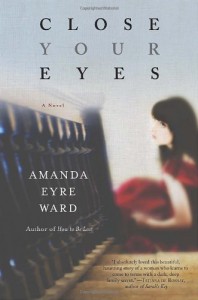 I enjoyed this page-turner very much. Once the second story starts, it's fairly easy to figure out what has happened, but the book is much more "about" the characters involved than it is a whodunnit. The novel talks about what motivates violence, sure, but it also follows the repercussions of decisions and explores how even people who have never met could have deeply intertwined lives.
I enjoyed this page-turner very much. Once the second story starts, it's fairly easy to figure out what has happened, but the book is much more "about" the characters involved than it is a whodunnit. The novel talks about what motivates violence, sure, but it also follows the repercussions of decisions and explores how even people who have never met could have deeply intertwined lives.
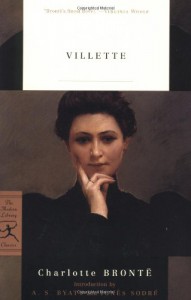 I finished this book last week, but it's taken me a while to figure out how to rate it. In many ways, it is "amazing," but I'm not sure I loved it--at least not the whole of it. I think it would have helped if I were better at reading French, or if my edition had footnotes on the bottom of the page instead of at the end of the volume, since some of my frustration was just from flipping back and forth so damn much (my problem, I admit, not Bronte's). I also think that because the scope of the novel was so small--Lucy Snowe knows so few people and is so geographically confined--the side plots following people like Dr. Bretton and Ginevra Fanshawe sometimes became a bit tedious. I was also frustrated by how difficult it was to "get" Lucy, who could sometimes be incredibly sympathetic (especially to a fellow introvert) and sometimes just plain thorny. I'm pretty sure that enigma was purposeful on Bronte's part, though, so my frustration is a sign of the book's success.
I finished this book last week, but it's taken me a while to figure out how to rate it. In many ways, it is "amazing," but I'm not sure I loved it--at least not the whole of it. I think it would have helped if I were better at reading French, or if my edition had footnotes on the bottom of the page instead of at the end of the volume, since some of my frustration was just from flipping back and forth so damn much (my problem, I admit, not Bronte's). I also think that because the scope of the novel was so small--Lucy Snowe knows so few people and is so geographically confined--the side plots following people like Dr. Bretton and Ginevra Fanshawe sometimes became a bit tedious. I was also frustrated by how difficult it was to "get" Lucy, who could sometimes be incredibly sympathetic (especially to a fellow introvert) and sometimes just plain thorny. I'm pretty sure that enigma was purposeful on Bronte's part, though, so my frustration is a sign of the book's success.My favorite parts of the book were the multiple dream-like sequences and gothic scenes in which a supernatural world touched reality seamlessly. These moments are so rich and so emotionally full that they are just a delight to read. Also, without giving anything away, the penultimate chapter is absolutely amazing. Getting there is worth it, I promise.
 As an introvert, I found this book incredibly informative and encouraging, but I would recommend it even more to extroverts who have trouble understanding the introvert mindset. Susan Cain provides scientific explanations and evidence for introverts' tendency to avoid sensation (did you know that introverts salivate more when exposed to lemon juice? I didn't). She also provides a convincing historical reading of how American culture came to value extroverts over introverts and treat introverts as weak and non-normal. Finally, she makes recommendations for families and organizations about how to treat introverts with fairness and sensitivity in order to bring out their natural strengths. I loved this book.
As an introvert, I found this book incredibly informative and encouraging, but I would recommend it even more to extroverts who have trouble understanding the introvert mindset. Susan Cain provides scientific explanations and evidence for introverts' tendency to avoid sensation (did you know that introverts salivate more when exposed to lemon juice? I didn't). She also provides a convincing historical reading of how American culture came to value extroverts over introverts and treat introverts as weak and non-normal. Finally, she makes recommendations for families and organizations about how to treat introverts with fairness and sensitivity in order to bring out their natural strengths. I loved this book.
 1
1
 The Magician King is a dark, funny novel that is better than The Magicians. It still questions what magic and heroism means in an imperfect world, but does so in a way that is a bit lighter and ultimately more satisfying than its precursor. It was a page-turner with an effective dual-story structure; the flashbacks were even more thrilling and suspenseful at times than the present plot. I really liked it, and I look forward to future Lev Grossman novels!
The Magician King is a dark, funny novel that is better than The Magicians. It still questions what magic and heroism means in an imperfect world, but does so in a way that is a bit lighter and ultimately more satisfying than its precursor. It was a page-turner with an effective dual-story structure; the flashbacks were even more thrilling and suspenseful at times than the present plot. I really liked it, and I look forward to future Lev Grossman novels!



